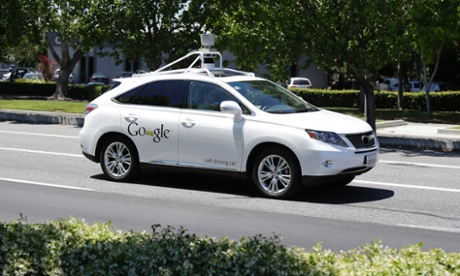
The US needs a federal robotics commission to co-ordinate its handling of artificial intelligence and robotics, according to the influential Brookings Institute think tank.
Without such a commission, the institute warns, America’s piecemeal response could lead to other nations taking the lead.
“Much of the problem turns on the lack of familiarity with robotics and the sorts of issues the mainstreaming of this technology occasions,” argues Ryan Calo, the report’s author. “The FAA does not know what to say to Amazon about delivering goods by drone, and so it says ‘no.’”
“At least initially, then, a Federal Robotics Commission would be small and consist of a handful of engineers and others with backgrounds in mechanical and electrical engineering, computer science, and human-computer interaction, right alongside experts in law and policy. It would hardly be the first interdisciplinary agency: the FTC houses economists and technologists in addition to its many lawyers, for example.”
Such an agency would be important to tackle the many interrelated problems faced by autonomous devices and software in fields ranging from driverless cars to Twitter bots. For instance, the question of liability is crucial in both fields: if a Twitter bot libels someone, can its creator be held liable? What about if a self-driving car crashes in to someone?
When it comes to the latter field, Calo argues, “the addition of even a tiny new area of liability could have outsized repercussions.
“A robot may always be better than a human driver at avoiding a shopping cart. And it may always be better at avoiding a stroller. But what happens when a robot confronts a shopping cart and a stroller at the same time? You or I would plow right into a shopping cart—or even a wall—to avoid hitting a stroller. A driverless car might not.
“The first headline, meanwhile, to read “Robot Car Kills Baby To Avoid Groceries” could end autonomous driving in the United States—and, ironically, drive fatalities back up.”
Calo also addressed criticism that there’s not enough properties unique to robots to justify a federal agency focused on them. “In my view, the difference between a computer and a robot has largely to do with the latter’s embodiment,” he said.
“Robots do not just sense, process, and relay data. Robots are organized to act upon the world physically, or at least directly. This turns out to have strong repercussions at law, and to pose unique challenges to law and to legal institutions that computers and the internet did not.”
In some of the biggest areas of automation, other countries are already gearing up to compete with the US. This July, Vince Cable, the business secretary, announced a £10m fund for driverless car researchers in the UK.
“The excellence of our scientists and engineers has established the UK as pioneers in the development of driverless vehicles through pilot projects,” Cable said at the time.
“Today’s announcement will see driverless cars take to our streets in less than six months, putting us at the forefront of this transformational technology and opening up new opportunities for our economy and society.”
• Driverless cars get green light for testing on public roads in UK

